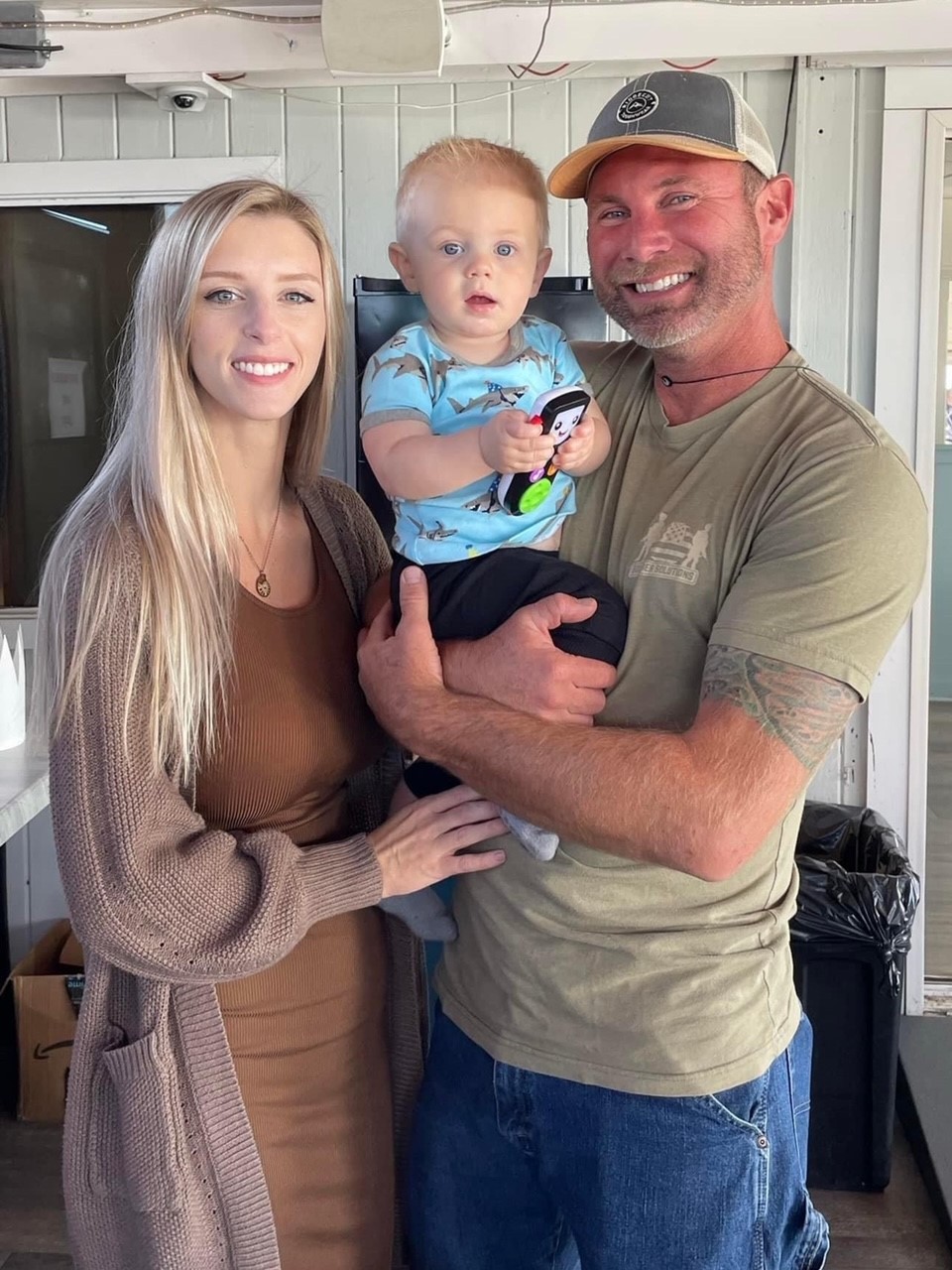Father with Rare Cancer Gets a Second Chance Thanks to Pioneering Procedure

This story originally appeared on Brigham Bulletin.
After a 2018 motocross race left Michael King in pain, he decided to visit his local primary care provider in Connecticut. There, his doctor made an unrelated discovery: King had multiple, non-cancerous masses on his liver. Because they were benign, the physician recommended keeping an eye on them but advised King not to worry.
That all changed in April 2022, when King was undergoing an MRI to see that the masses weren’t progressing. Imaging showed a new, more troubling concern: a tumor on his pancreas. Further testing revealed that King had a gastrointestinal stromal tumor (GIST), a rare type of cancer that affects the cells in the walls of the GI tract.
At his local hospital, his care team recommended major surgery — one that would leave him with potentially lifelong side effects. Then 43 years old and having just become a new father, King was reluctant to accept that as his only option.
As he and his family searched for alternatives, they came across Dana-Farber Brigham Cancer Center, where they encountered surgical oncologist Jiping Wang, MD, director of Minimally Invasive Gastric Surgery in the Division of Surgical Oncology. A specialist in treating liver, pancreas, and gastrointestinal cancers and soft tissue sarcoma, Wang found that King was a good candidate for a new approach he has pioneered that uses robotic surgery to remove certain types of GISTs.
Called the TIRA procedure, it is designed for tumors located in a portion of the small intestine known as the duodenum or those near two major blood vessels in the chest, the aorta and vena cava. TIRA offered a far less-invasive and safer option for removing King’s tumor — and a better chance that he would see his baby son grow up.
A Safer Approach
GISTs are rare tumors that can develop in the digestive system, including the stomach, small intestine, and colon. They are caused by mutations in the cells that control the growth of the gastrointestinal tract. Although GISTs are most common in people over 50 and rarely seen in younger adults, they can develop in people of any age.
The standard treatment for GISTs is surgery to remove the tumor. But for King, the location of his tumor and other complications made his situation more complex. Specifically, there was a considerable risk of puncturing the large, non-cancerous masses on his liver, which are known as hemangiomas.
“The liver hemangiomas made surgery more dangerous,” Wang explained. “They are like clusters of blood vessels, and if a surgeon inadvertently punctures one of them, it could be disastrous in terms of blood loss.”
The procedure that King’s doctors in Connecticut had initially recommended is known as the Whipple procedure, also called a pancreaticoduodenectomy. It involves removing the head of the pancreas, the duodenum, the gallbladder, and part of the stomach. The remaining organs are then reconnected to allow for digestion.
A Whipple procedure is a major surgery that can take several hours to complete and requires a large incision in the abdomen. Recovery can last weeks, and patients may experience short- and long-term complications such as pancreatic leaks, digestive issues, and diabetes.
Wang’s TIRA procedure, which stands for Transabdominal Inferior Retroperitoneal Approach, uses robotic precision to remove the tumor without the need for a large incision, repositioning of organs or the risk of major blood loss. Instead, the surgeon makes five small and strategic incisions that are about the size of a dime. Then, the surgeon removes the tumor along with a small amount of neighboring tissue without relocating any other organs.
This approach results in a faster recovery time and fewer complications for patients, Wang explained.
“I knew of the risk of performing a traditional Whipple, so I offered Michael the less-invasive option that would be safer in his case,” Wang said.
After a successful surgery, King was able to return home just a few days later. Today, he is cancer-free and back to running his landscaping company and enjoying life with his wife and their 17-month-old son.
“The scars in my stomach remind me how fortunate I am,” King said. “I’m thankful that I’ll still be around for my son.”